

2:30 am IST - 4:30 am IST
Past Event
Content from the Brookings Institution India Center is now archived. After seven years of an impactful partnership, as of September 11, 2020, Brookings India is now the Centre for Social and Economic Progress, an independent public policy institution based in India.
India can save a lot of money through sufficient planning and an integrated approach to develop future ready infrastructure
Brookings India and ISGF (India Smart Grid Forum) hosted a private roundtable session with Dr. Amory Lovins (a pioneer and a global authority on alternative, efficient, and sustainable energy) who spoke about his book Reinventing Fire and also shared insights, from his work, for making sustainable and cost-effective energy for the Indian economy through efficiency gains via design changes and supportive policies.
Some of the mega trends that have and continue to effect a shift towards more efficient and cleaner energy generation and consumption are:
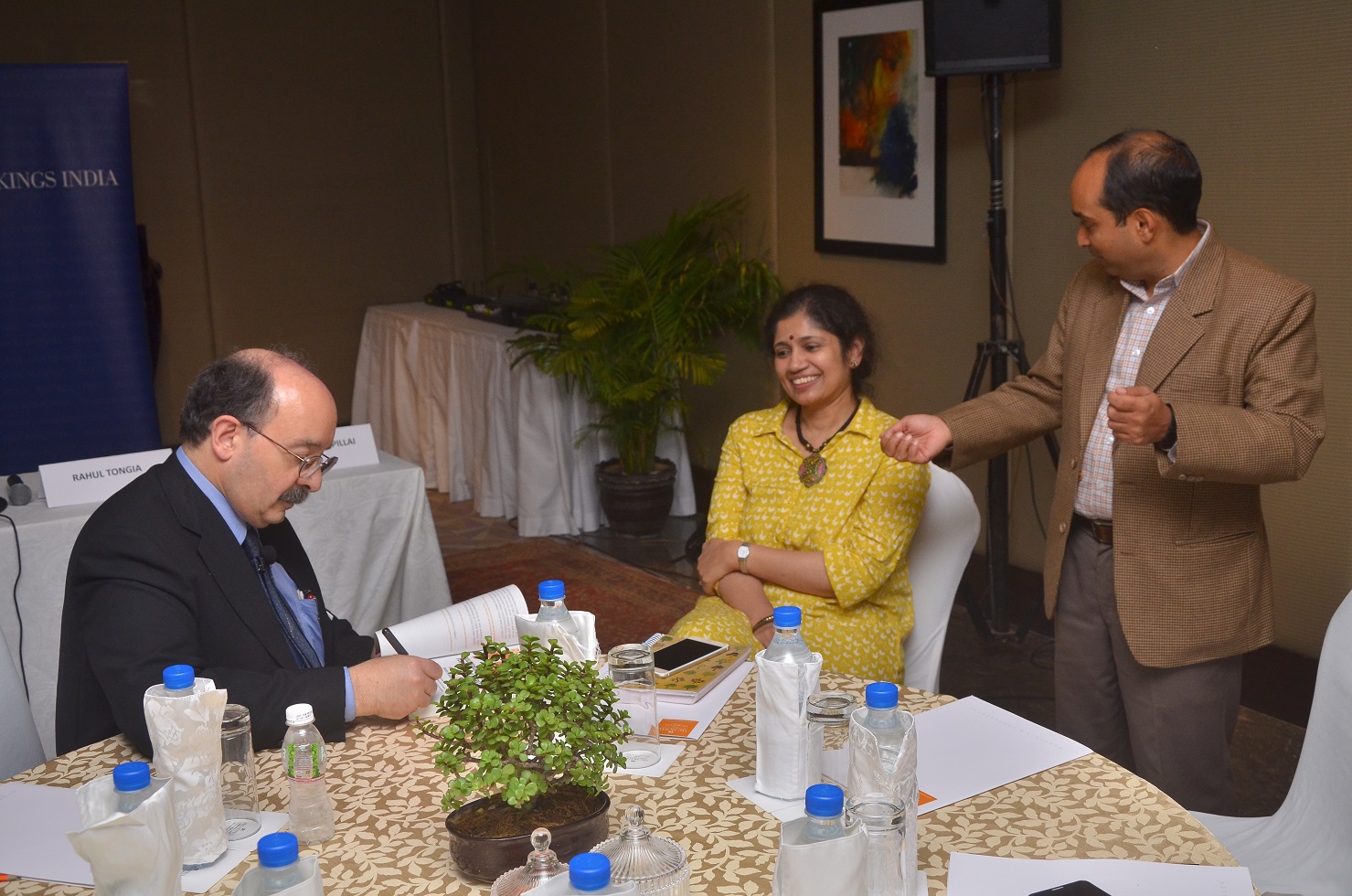
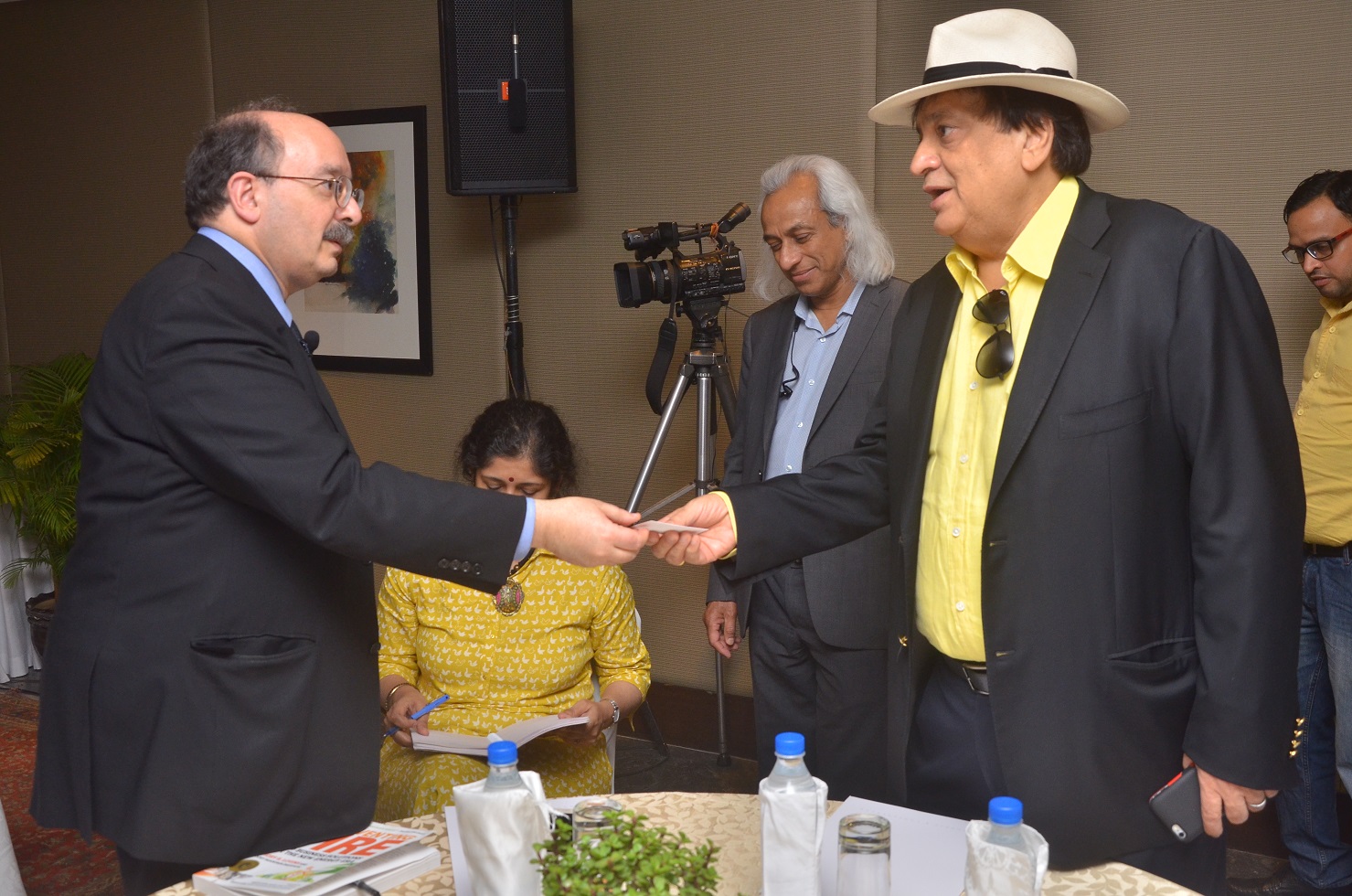
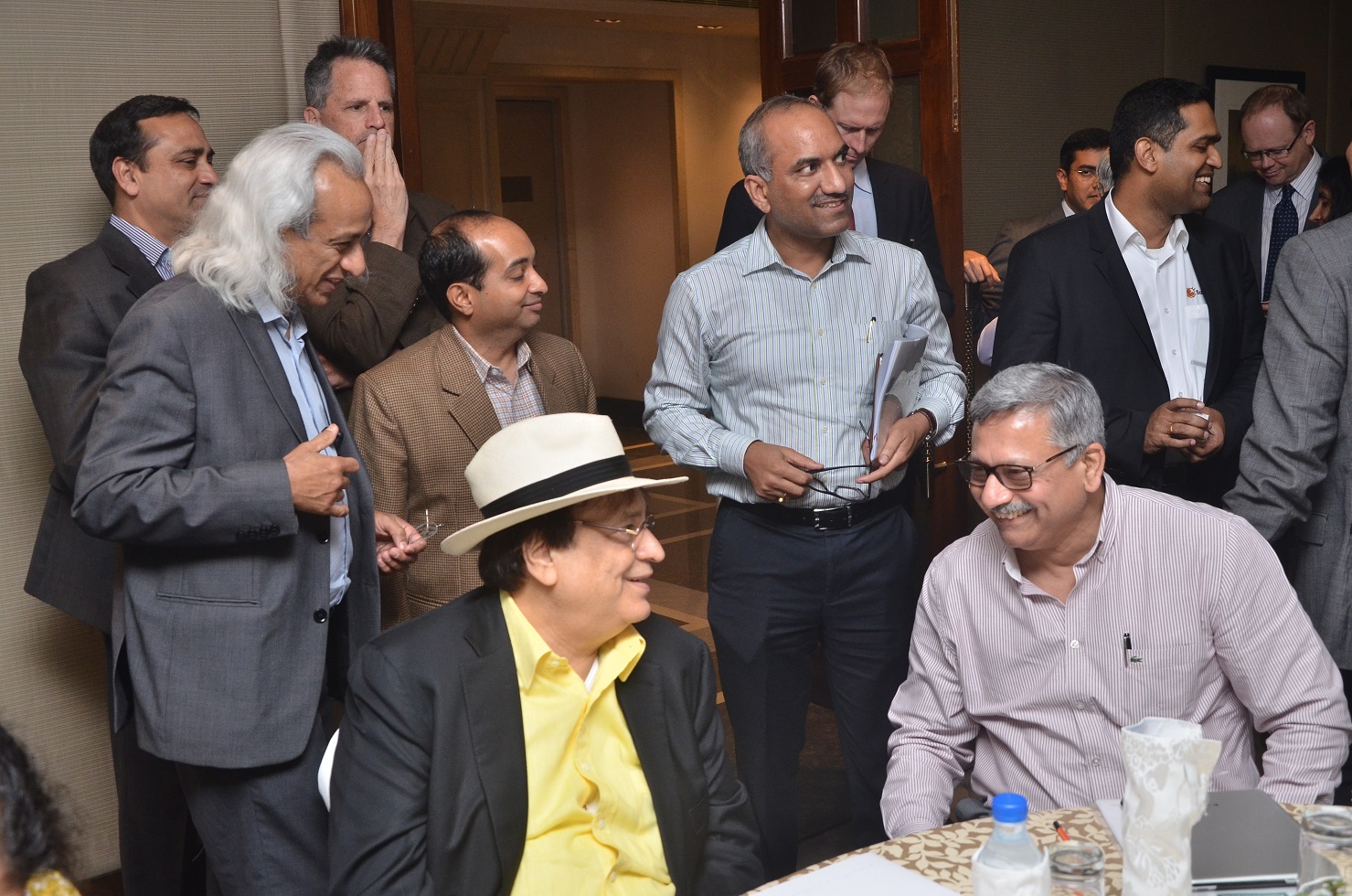
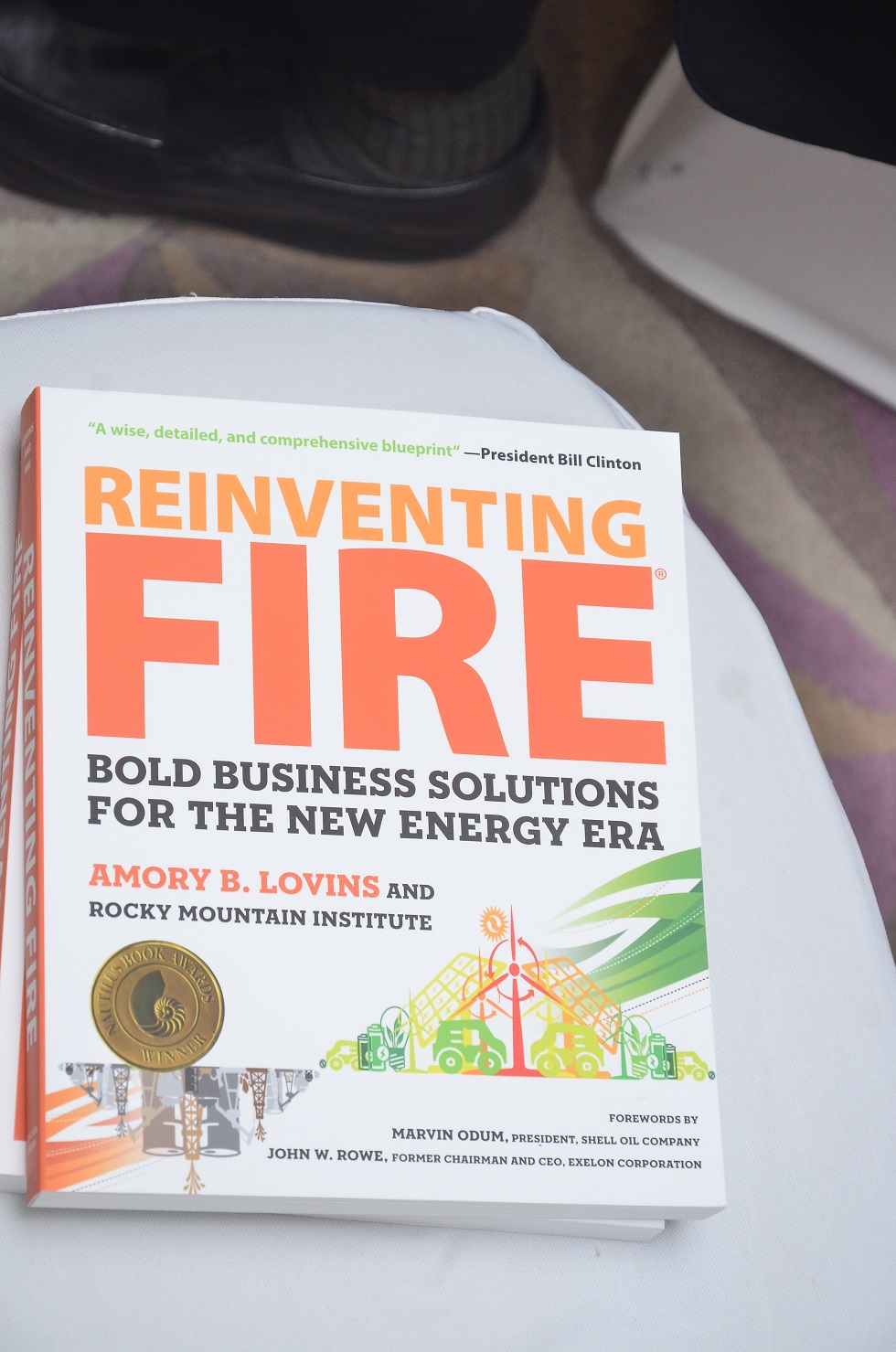
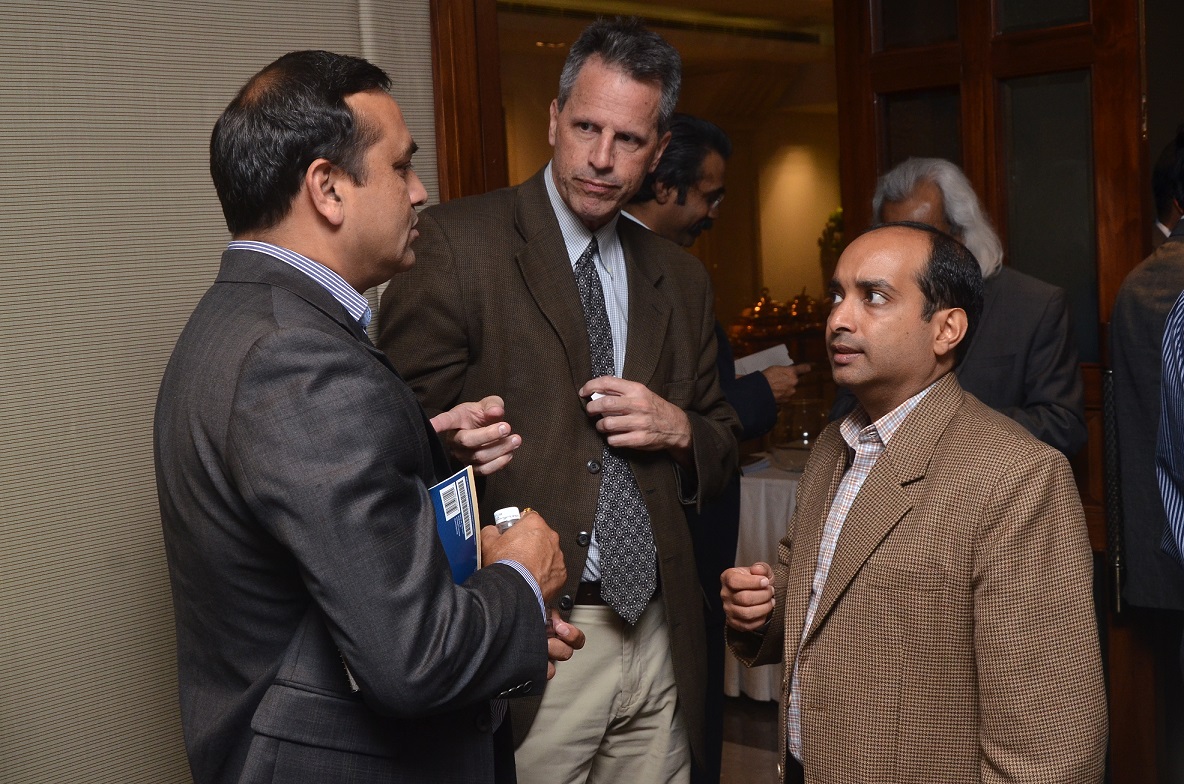
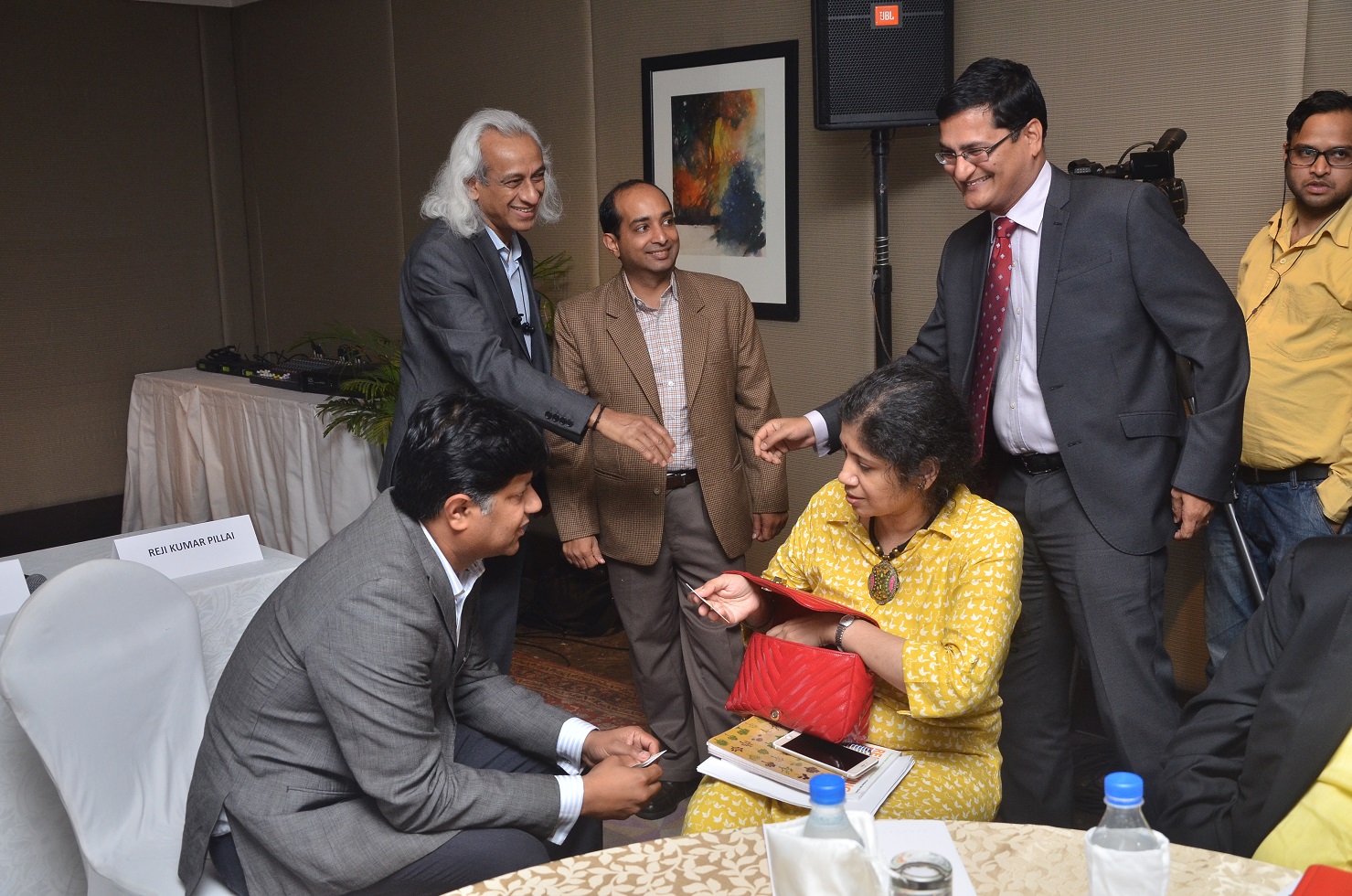

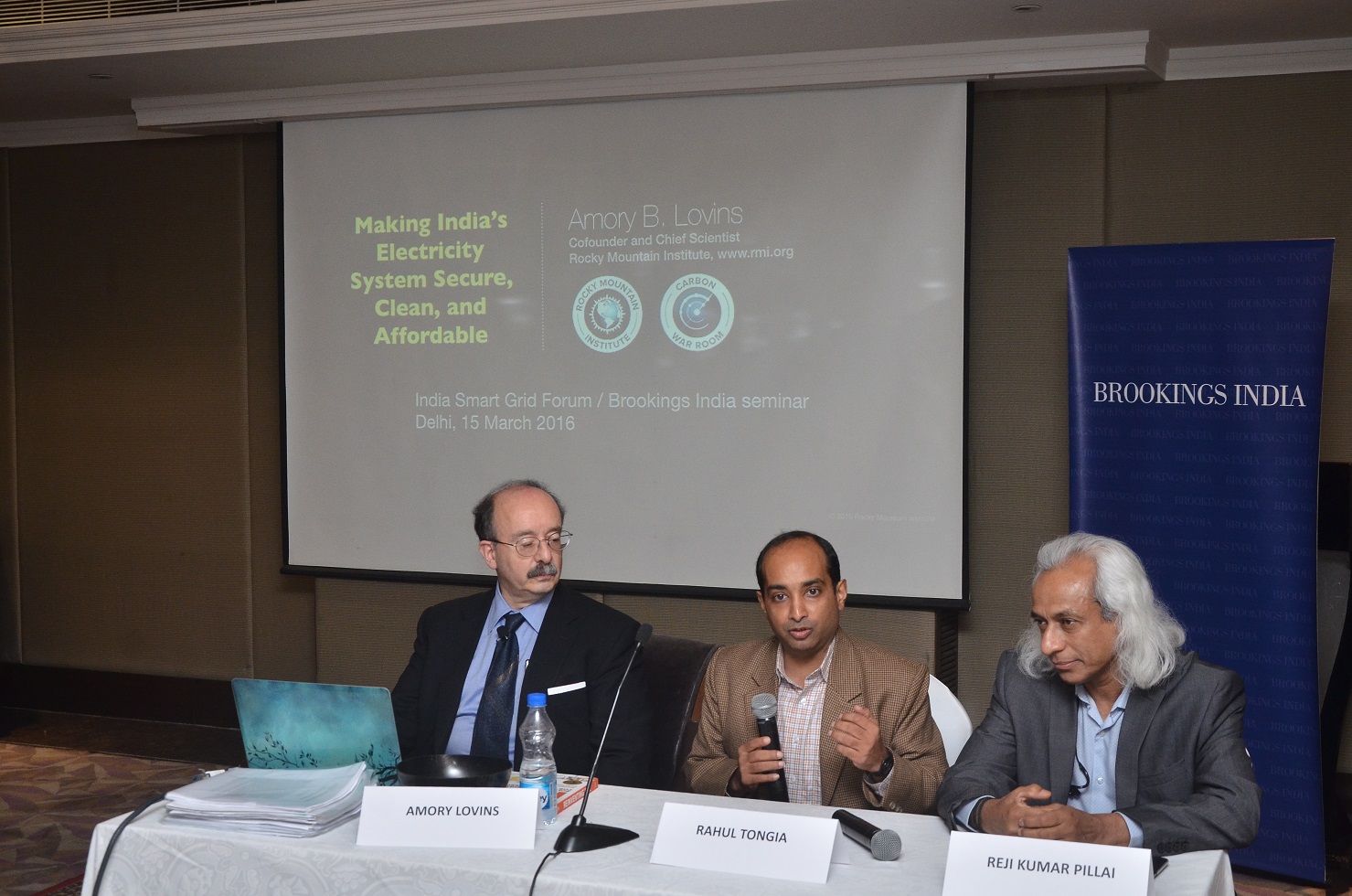
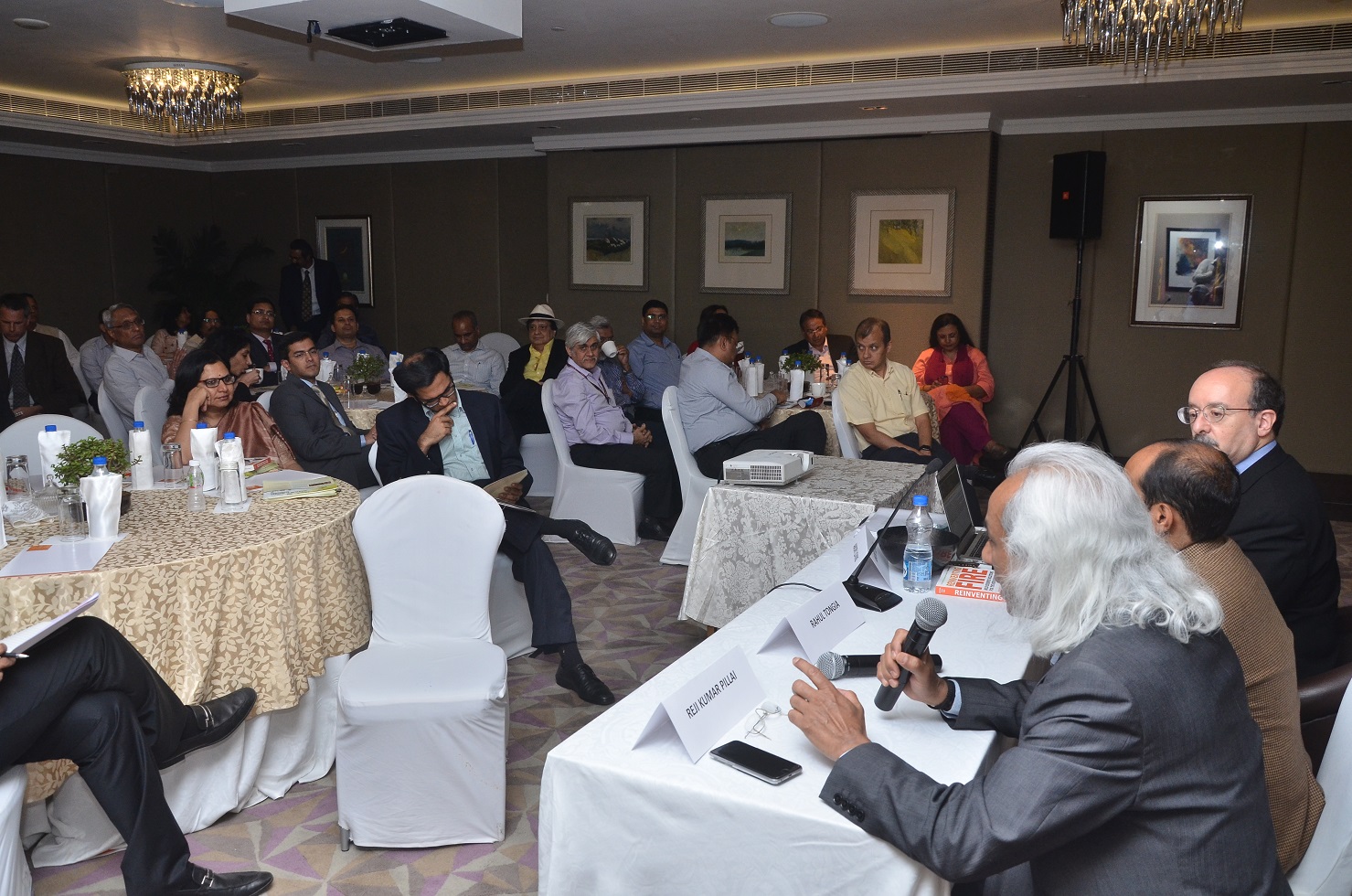
A few of the specific insights discussed included
1. If you can’t solve a problem, make it bigger. Water is a major requirement, and so solving agricultural water needs via efficient pumps and drip irrigation is a win-win solution. Similarly, the challenges of transportation (and local pollution) can be addressed with electric vehicles, which become a natural sink for the energy from variable renewable energy.
2. Look for co-benefits. g., electric vehicles aren’t just about transportation, or even energy, but local air pollution.
3. Move towards a service model for energy. This will allow a valuation of “negawatts” instead of megawatts (reduction in demand to be treated similarly as production of supply). Traditional utilities made more money selling more product (kilowatt-hours). People don’t want electricity per se – they want the services it provides, such as lighting, cooling, pumping (or water), etc. Pricing the service allows utilities to make the same (or more) money with less energy sold. Else, utilities will (eventually) dislike efficient devices, especially as used by so-called “paying customers”.
4. If utilities do not embrace a more modern future, with more edge-based innovation, consumers may leave the utilities, hastening their demise. Instead, they can re-invent themselves, as providers of a service, which can extend to a grid offering reliability and wires, and even energy services. As India finds itself at a decisive moment in history with a heightened sense of urgency for infrastructure development, it can save a lot of money through sufficient planning and an integrated approach to develop future ready infrastructure.
Ultimately, policies should embrace and even enhance change, instead of resisting change. These can delay the inevitable, but not stop it.
Watch the complete video of the discussion
Discussion: There were spirited discussions on requirement of policy changes in India to support efficiency gains for the system. However, challenges in implementing policy reforms was not lost on the gathering with a number of participants pointing out the difficulties involved. The next step for researchers should be how to operationalize such ideas in the context of India’s political economy, with a federal system and a range of subsidies and cross-subsidies.
Dr. Amory Lovins is co-founder and Chief Scientist of Rocky Mountain Institute; energy advisor to major firms (including more than 100 electric utilities) and governments in 65+ countries for 40+ years; author of 31 books and 530 technical papers; and recipient of numerous awards and honorary doctorates. Dr. Lovins’ book “Reinventing Fire” has been called a blueprint for the US (and global) energy future by President Bill Clinton.
With inputs from Anurag Pal Sehgal.
Like other products of the Brookings Institution India Center, this report is intended to contribute to discussion and stimulate debate on important issues. The views are those of the authors.

Rahul Tongia, Anurag Sehgal, Puneet Kamboj
2020
Online Only
Tuesday, 3:00 am - 4:40 am IST

Saneet Chakradeo
August 18, 2020